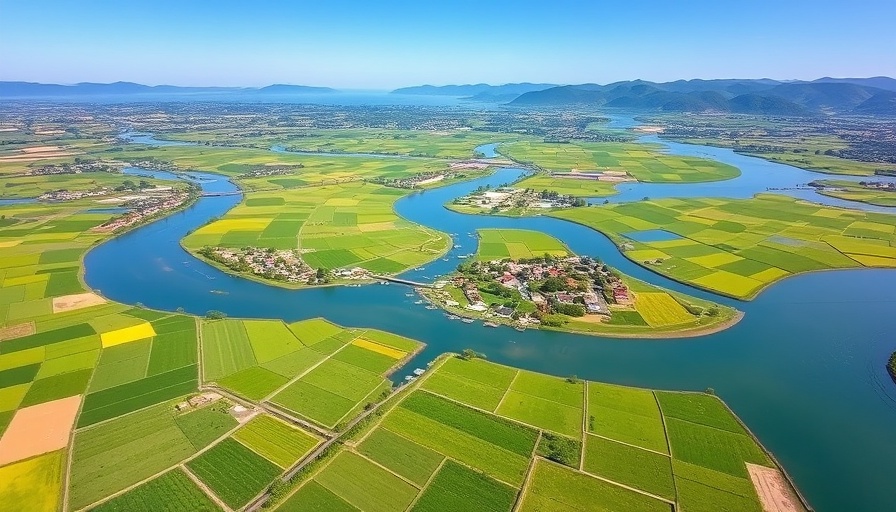
A Community Torn by Memories: The Impact of Past Disasters
For the residents of Guguak Malalo, the memories of a devastating flash flood linger long after the waters receded. As a new renewable energy project emerges nearby, these recollections from 25 years ago stir apprehension and skepticism within this lakeside community. Memories of desperation as a wall of rock crashed down the hillside remain vivid, manifesting caution towards the proposed floating solar farm on Lake Singkarak. This caution is compounded by the community's history with the hydropower plant that many believe disrupted local ecosystems and livelihoods. Without reconciliation of these historical grievances, the development of green energy solutions risks falling prey to the shadows of past failures.
Renewable Energy as a Double-Edged Sword
While the construction of the floating solar array is heralded as a significant step towards Indonesia’s renewable energy goals, it raises critical questions about social responsibility and environmental consequences. Achieving a projected capacity of 50 MW, this project aims to symbolize a shift towards sustainable energy sources, yet local residents grapple with the fear of ecological disruption. The trust that should ideally accompany the introduction of such initiatives is severely strained. The ongoing tension between community members and energy developers highlights an essential conversation about the social implications of renewable energy deployment. The challenge now lies in ensuring that green technologies do not repeat the mistakes of the past while fostering meaningful engagement with the community.
Voices from the Community: Integral Perspectives
The voices of Guguak Malalo’s residents resonate with concerns not only about the potential impact of the solar farm on local fish populations but also about past disappointments tied to development promises. Many fear that the historical context of unfulfilled commitments will repeat itself, hindering community support for energy innovations. As Mardianis, a local resident, emphasized, “If there’s heavy rain… I won’t dare spend the evening at the food stall.” It’s a reminder that disaster and fear can precipitate a barrier to acceptance, one that must be addressed through transparent communication and authentic engagement efforts. The path to community support for renewable energy projects necessitates actively soliciting and addressing these concerns, ensuring that all stakeholders can find common ground.
Striking a Balance: Sustainable Solutions for a Fragile Ecosystem
This floating solar project is positioned as a viable solution to harnessing clean energy, yet it cannot be disconnected from its environmental responsibilities. Stakeholders need to incorporate practices that prioritize the ecosystem of Lake Singkarak, particularly the endemic bilih fish that residents depend on for their livelihoods. PLN's chief executive has assured that the solar farm will not interfere with the lake’s natural habitat, yet doubt prevails among locals about these promises. Integrating conservation efforts alongside development can lead to a more sustainable approach that respects both the environment and the community’s needs. Collaborative measures, such as engaging local fishermen in conservation initiatives or providing educational resources about sustainable energy’s ecosystem impacts, could foster a more supportive environment.
Future Prospects: A Call for Broader Engagement in Renewable Energy Development
As Indonesia intensifies its pursuit of renewable resources, it is critical for policymakers and development agencies to prioritize community engagement frameworks. By setting a precedent for transparency and accountability in the context of energy projects, sustainable development initiatives can begin to convert skepticism into support. This is particularly pertinent in regions like West Sumatra, which feature unique biodiversity and cultural histories that deserve careful consideration in energy planning. The country’s ambitious goals for renewable energy could ensure a greener future, provided they take into account local aspirations, historical contexts, and genuine community involvement.
A Sustainable Future Worth Fighting For
As communities like Guguak Malalo navigate the complex interplay between development and environmental conservation, the pressing question remains: How can a just energy transition be achieved? Efforts geared toward achieving Indonesia's renewable energy targets can only flourish through active involvement and robust partnerships with local communities. Unification in purpose—where economic development meets ecological integrity—will shape the path to a sustainable, resilient future for regions affected by both climate change and historical precedence.
Do you want to learn more about sustainable living, renewable energy projects, and how communities can lead the charge towards a greener future? Engage with us as we explore deeper into sustainable development, and take actionable steps towards a future that balances eco-friendly practices with community needs.
 Add Row
Add Row  Add
Add 



Write A Comment